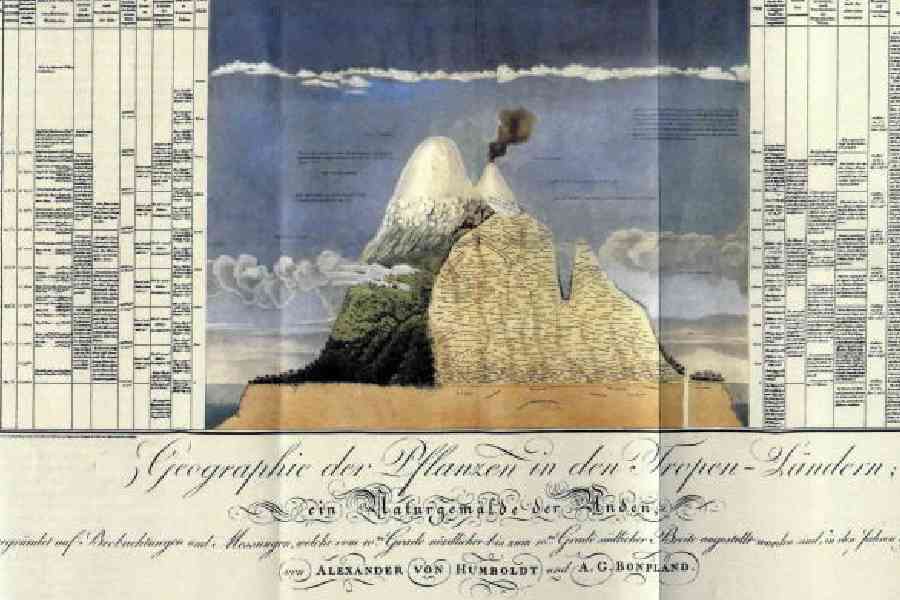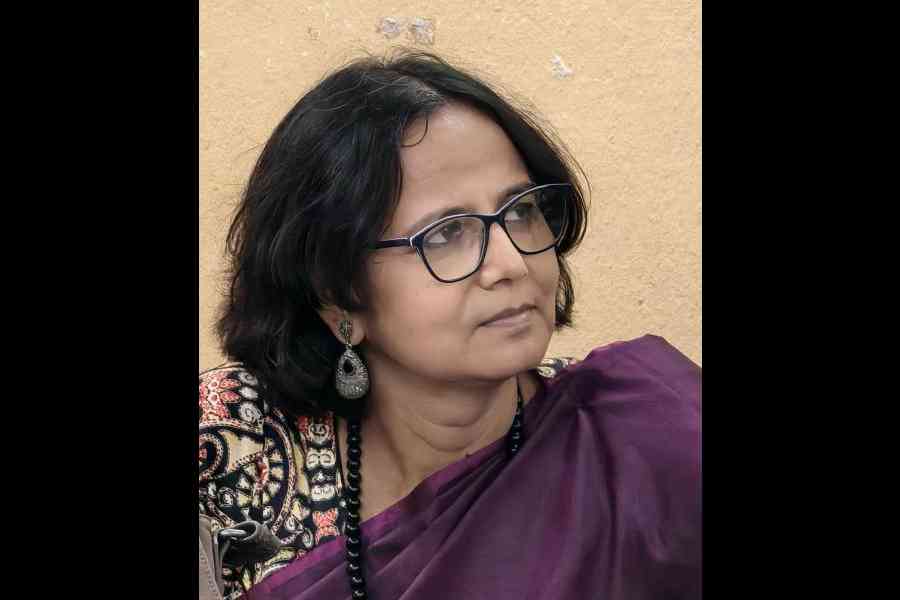New Worlds


q Geography is a subject that can fire the imagination. What are its roots and how important a discipline is it?
Geography as a modern discipline of study began with the colonial expansion of the Spanish, British, French, Portuguese and other Europeans. Colonial explorers started describing continents and countries across the world for their own interests of conquering new territories, expanding colonies and exerting control over resources. German geographer, naturalist and explorer Alexander von Humboldt laid the foundation of modern geography. He travelled extensively across the Americas in the late 18th and early 19th centuries. It was he who started the trend of meticulously documenting characteristics of those territories — including physical phenomena, human conditions and natural resources — by gathering data from the field.
Although geography started its journey to facilitate colonialism, it became one of the most important disciplines of study in the 20th century.

q Has the subject become more interdisciplinary in recent times?
From the very beginning it was interdisciplinary. Geography can bridge the gap between the physical and the social sciences, which has become the need of the hour to save our planet. Humboldt approached the study of the natural world in a holistic manner; he viewed the environment as an interconnected whole. It helps one understand nature on one side and human society on the other at different scales, starting from the world to a city or a village. To better represent the human-centric earth, the discipline has adopted methods from a range of subjects, from statistics and geology to sociology and anthropology. As a result, geographers are able to talk to other disciplines quite easily and to make remarkable contributions.
q What do you think about the increasing specialisation?
Specialisation has become the character of every discipline and geography is no
exception. From the very beginning we have division in the content: physical and human geography. Then sub-disciplines started to emerge within these two broad fields.
In the process of making many sub-disciplines, we slipped away from the holistic approach that is core to the study of geography. Boundaries are becoming harder to cross.
When you focus more on individual trees, you normally miss out on the forest. Let me clarify the problem of specialisation with an example. There is a specialisation called fluvial geomorphology; it is the study of rivers and streams. However, there is hardly any river in the world that has not been altered by humans. Now the question is: how can we separate this from human geography? To battle with the problematic boundaries within the discipline, a new approach has emerged called hybrid geography.
q How can geographers contribute to understanding people or communities better?
We help understand the changing world and how human societies and communities evolve in that process of change. We also analyse how human societies perceive nature and how they change that in favour of themselves. Therefore, geography provides us a framework for analysing the connections between a society’s physical condition, its livelihood activities, and its social and political structures, which can help understand the communities better.
q What challenges do climate change pose for a practising geographer?
Well, I have a different opinion about climate change. I am not saying that climate change is not happening, but I think it is also a narrative which is being built by powerful international organisations. They are blaming climate change for every natural disaster or environmental damage. Many incidents or events are happening not only because of climate change but also because of the enormous alterations of the natural systems. For instance, some experts are blaming climate change for cloudburst events or flash floods in the Himalayas. In reality, such events have been happening for years and decades. However, the impact on human lives is now too high because we have intervened and altered the natural system to a large extent in the name of development and now the balance is totally lost.
q How is artificial intelligence (AI) changing geography? Can it become a threat to the discipline?
AI has revolutionised geography by improving analysis and processing of big data. AI can generate maps and read spatial patterns based on the data fed into systems. But it still fails to read certain ground realities. It cannot easily answer questions like why and how certain changes are taking place in a particular space. These hows and whys can only be answered by rigorous conversations between the researcher and the research participants. Understanding these ground realities will always be necessary in many fields, and therefore, AI cannot take over our jobs completely. We are better off focussing on that unique capability of geographers and training our students to do that job well.